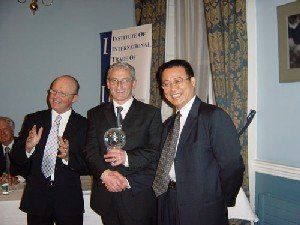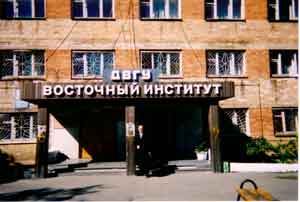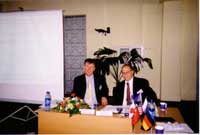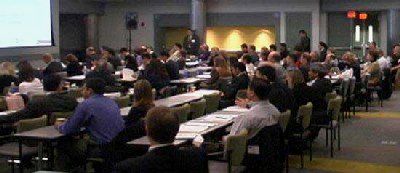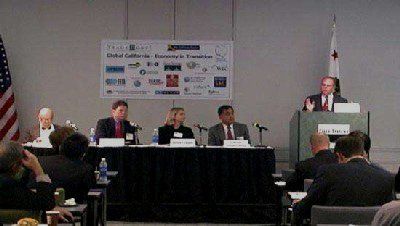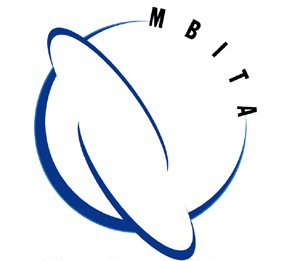President
Tony Livoti
MBITA
Vice President
Shay Adams
AIM Medical Sales
Members:
Dr. Edward Valeau
Hartnell College
Salinas
Victor Cordell
Monterey Institute of International Studies (MIIS)
Marcelo Siero
Houses.com
Jim Faith
TradePort.org
Cristina Polesel
Membership/Event Manager
MBITA
This newsletter has been created by MBITA's editor
Cristina Polesel
cristina@mbita.org
MBITA New Member:
MBITA would like to welcome its new member Beans International Corporation (BIC) , located in the heart of Silicon Valley, California. Established in 1999, BIC currently opened also offices in San Diego and Mexico.
The company started its business as a leading supplier of the best process equipment available from Japan and other Asian countries to the American device/PCB manufacturers. The rapid spread of SMT and increasingly shorter product life cycles are requiring wider process varieties and further reduction in manufacturing costs.
BIC has carefully chosen the most reliable and cost-effective products which can significantly improve production throughput, yield, and product quality, while substantially reducing manufacturing costs. BIC's selected line of quality process equipment makes sure that the company’s clients stay ahead of their competition, foreign or domestic.
Over the years BIC has developed strong ties with some of the most prestigious equipment manufacturers in Japan and Asia. The company delivers the best quality equipment at the lowest possible prices. From Japan, BIC imports equipment no one else sells in the United States; equipment that enabled Japan to develop her current state-of-the-art manufacturing technology and the highest quality standard. From other Asian countries, BIC imports high-quality, low-cost components and accessories underwritten by their abundant production capabilities and outstanding quality management methodologies.
BIC major customers include: Alpine, Amano, Casio, Canon, Clarion, Denso, Fujitsu-Ten, Hitachi Impac, JVC, Matushita Panasonic, Mitsubishi, OKI Data, NEC, Ricoh, Sony, Solectron, Sharp, Sanyo, SMK, Tabuchi.
The company’s goal is to provide 100% customer satisfaction through quality products, excellent services, and customized solutions. BIC staff are not only experts of the latest manufacturing technologies in the electronics and semiconductor industries, but are also trained to recognize and deliver the best product solutions for the next-generation technologies and applications to each of the company customers. BIC team of engineers provide timely services and support whenever and wherever required.
Although the company itself is still relatively new, its staff has 15+ years of experience in marketing quality test equipment in the United States. In addition to equipment sales, BIC provides consulting services related to PCB manufacturing, testing, and quality assurance.
Mr. Yoshi Endo, President and CEO of BIC, announced that the company has opened a new division to provide export management services in the global marketplace. With years of experience in the Asian marketplace, BIC develops international markets for export-ready companies that would like to be successful in the global marketplace. BIC evaluates market opportunities, establishes distribution strategies, and actually implements successful business structures for managing business.
Contact:
Yoshi Endo
President/CEO
Beans International Corporation (BIC)
975 Mabury Rd.
San Jose, CA 95133
Tel.408-279-5559
Fax 408-279-5552
Web: www.beans-intl.com
email: yoshi@beans-intl.com
Vincent O’Brien, First Director of eBSI added:
“We believe that our structured, hands-on approach to assisting every individual participant to achieve tangible business objectives as part of the list of program outcomes combined with access to an extensive resource of human capital and practical exporting knowledge through our network of Learning Guides, Specialist Advisors and ITS Accreditation Graduates means that from day one new ITS participants are welcomed into a positive, collaborative learning environment focused on the achievement of export success and expanded business opportunities for all.”
As an example of the variety of participants and the practical outcomes that can be achieved from this approach, Mr. O’Brien explained that on Thursday evening, 4 December 2003, three competent international trade specialist graduates went head to head for the China Systems Best ITS Project Trophy 2003 at an event hosted by Anglo Irish Bank, one of Ireland’s top performing banks based in Dublin.
The three competitors each had fifteen minutes to present the Industry Trade Study projects they had developed as part of their International Trade Specialist Accreditation Program to a panel of eminent judges and invited guests from international trade sectors and government agencies.
Mr. Aidan Byrne, CEO of Blackstairs Technologies outlined his industry trade study on the use of electronic documents to facilitate secure and cost effective international trade. Ms. Helen Naughton, of CIMA (Chartered Institute of Management Accountants) presented a highly engaging case study on the application of intercultural management techniques to increase critical success factors as part of an Export Market Entry Strategy. Mr. Tom Grace, Customs Compliance Officer at Magna Donnelly in Naas demonstrated how the correct application of international trade rules, procedures and customs and logistical planning can achieve significant savings and advance corporate international competitiveness in the global market.
The three finalists had recently graduated under the International Trade Specialist (ITS) Accreditation
Program which will be promoted by MBITA throughout California from February 2004.
Ms. Anna Nesterova, Director of Studies at eBSI, provided some highlights of training delivered during 2003.
“We now have participants for our blended eLearning program in more than 20 countries worldwide. By blended eLearning I don’t just mean that eBSI delivered training over the Internet but that eBSI actually physically visited these countries. We must remember that eLearning is an evolving process and in many instances ‘face to face’ physical interaction remains an essential element in the evolving learning world”.
The global reach of eBSI in Kiltimagh is quite amazing. During 2003, eBSI has delivered training programs which involved physical travel to the following countries: Azerbaijan, Bangladesh, Belarus, Czech Republic, Georgia, Hungary, India, Kyrgizstan, Macedonia, Moldova, Montenegro, Pakistan, Poland, Russia, Slovakia and Ukraine.
Little wonder that eBSI has an interesting mission statement for international trade training on a banner in the attic of the IRD centre in Kiltimagh, Co Mayo. It goes ‘From Knock to Vladivostok and back to Kiltimagh’. And now we can add California to the banner”, says Tony Livoti, Executive Director of MBITA.
During this long economic downturn, many Monterey Bay business people have “hunkered down” rather than venture abroad, reasoning that foreign opportunities are too risky and expensive.
But if you’re not constantly looking abroad for markets, you’re missing the boat. There are dozens of emerging markets that are worth exploring. Here are some of the “low-hanging fruit” that I’m aware of:
When looking abroad for business, make sure to “aim ahead of the flying duck” in all areas where your potential customers will need assistance: consulting, market research, business development, marketing, advertising, financial and legal services, and business advisory services to U.S. companies going abroad as well as foreign companies entering the U.S. or other markets you know.
The U.S. economy cannot compete on cheap labor or low prices; we must offer high value-added services and products. The fastest way it to identify a needed service, then parlay it into a complete solution of hardware, software, and services. To survive and thrive in this brave, new global economy, you need to be extremely perceptive, agile, and innovative.
Adapt or die!
Sheridan Tatsuno is a long time MBITA member and has worked as a consultant on numerous MBITA projects.
The Russian Far East
An Emerging Region for Global Trade
by Tony Livoti, MBITA
In October of last year I visited the Russian Far East for the third time in three years. As a Westerner visiting this unique European culture in the middle of Industrial Asia, I have noticed economic growth in every visit. This last visit in October of 2003 truly represented the most noticeable economic growth I noticed in all of my three visits.
I commented on this noticeable difference of growth to my Russian friends as they drove me through the traffic congested streets of Vladivostok. I told them that I saw more smiles on faces, more people busily moving around the city and more new buildings being constructed.
The streets were jammed with Japanese cars, new and attractive apartment buildings were sprouting up throughout the city and a sense of business and optimism was more apparent to me than my two previous visits. It was not as noticeable to my Russian friends who confront the daily challenges of Vladivostok life everyday, but I could not deny my feelings that something powerful was taking place in this intriguing and vibrant city.
I was asked to make a presentation on Global eCommerce at the Khabarovsk Academy of Economics and Law (KAEL) which is located 400+ kilometers north-west of Vladivostok. My presentation took place during a NATO sponsored International Scientific Conference entitled ‘The Development of Economic and Legal Interactions of Pacific Rim Countries’.
I took a twelve hour train ride from Vladivostok to Khabarovsk and enjoyed every minute of this evening journey through the sometimes vast wilderness of the Russian Far East. As I contemplated my thoughts in my private train berth for the long journey, I thought about the many Russian travelers during Soviet times that took this 50 year old electric train before me. I felt their presence and energy in the old carpets and worn berths around me and pondered about Russian life during those times.
The conference in Khabarovsk was informing and exciting. I brought the message of the new technologies and global trade in my presentations throughout the three-day conference. It was received with enthusiasm and interest in how these new concepts would soon become a part of Russia’s emerging small to mid-sized business sectors and their interaction in the new Global economy.
The young students at KAEL were drawn to these concepts like fish to water. It was very exciting to think about Russia twenty years from now and how these young people would then be Russia’s business and government leaders. I saw wonder and satisfaction in their eyes as they knew that they would be a part of a very different Russia than that of their grandparents and ancestors.
One of the most enjoyable parts of this visit to Khabarovsk was the formal luncheons and dinners of invited guests that were making presentation at the conference. To say it was a banquet every time we ate was an understatement. Between our Vodka toasts and eight course meal, everyone at the table had the floor at least once to express their feelings through a Vodka toast. Sometimes it was politics, sometimes business, sometimes humorous and sometimes serious, but every toast seemed to have a feeling of sincerity which I truly appreciated. Another guest from NATO who sat next to me at one of the dinners commented that the Russian culture of gathering for food and discussion was totally unique. He said that he had traveled throughout the world and nothing was quite like a Russian meal.
Upon my return to Vladivostok I had the pleasure to lecture on Global eCommerce at Professor’s Abramov’s economics class for one week at the hundred year old Far East National University (FENU). Mr. Abramov is also the director of the Far East Center for Economic Development (FECED), MBITA’s partner in the development of the Global Trade eCommerce Portal (GTEP) for the Russian Far East. Again to see these young Russian students grasp the new technologies of global trade was an exciting experience. Although these students knew that their economic conditions are challenging compared to other countries, they realized their situation is changing fast in Russia and their generation is tabbed as the one that speaks English, has access and an understanding of Western culture through the Internet and Cable television and will inherit a Russian Far East rich in oil, coal and natural gas.
The Russian Far East is now exporting timber, fish, oil, natural gas, minerals and coal to China, Korea, Japan and the U.S. There is more foreign investment being made in the Russian Far East than any other part of Russia because of the Sakhalin Island Oil reserve project, which is heavily invested by Mobile Oil and British Petroleum. These efforts will surely ‘trickle-down’ into the Russian Far East’s emerging small to mid-sized enterprise (SME) community.
The Business Information Service for the Newly Independent States (BISNIS), a division of the Foreign Commercial Service (FCS) of the U.S. Department of Commerce (USDOC) has some great reports on the various industries of the Russian Far East. Go to the BISNIS web site and type in 'Russian Far East'.
The BISNIS office in Washington D.C. provided MBITA with the Russian Far East’s top industry sectors where import and export opportunities exist.
1. Oil and Gas
2. Building/Construction/Infrastructure
3. Food Processing
4. Wood Processing
5. Mining
6. Agriculture
7. Auto parts/Automobiles/Trucks/Automotive products8. Fish Processing
9. Ports/Shipyards
10. Financial services/mortgages
11. Tourism
12. Medical Industry/IT/Telecom
13. Apparel
14. Environmental Industry
When I met with the U.S. Commercial section at the U.S. Embassy in Vladivostok at the end of my journey it was decided that a California trade mission of small to mid-sized enterprises was in order. There is an emerging young generation of Russian Far East people that are employed primarily by Japanese, Chinese and Korean firms. These people have money and a desire to buy Western products because consumer products are now dominated by the Chinese and Koreans in the Russian Far East.
Also, we believe there are some good opportunities for American companies to set up manufacturing facilities in the Russian Far East which is strategically positioned for distribution points in Industrial Asia and has a highly-educated and cost-effective Labor force.
As I took the long plane flight back from Vladivostok I knew that I would return soon to help expand bi-lateral trade into the Russian Far East and also have some of those great meals with my Russian friends and business associates.
Please contact the MBITA office for further details on this trade mission to the Russian Far East which is being planned for early August of 2004.
Tony Livoti
Executive Director
Monterey Bay International Trade Association (MBITA)
Tel. 831-469-0148
email: tlivoti@mbita.org
The California Certified Organic Farmers (CCOF) and MBITA have received a grant from the California International Market Promotion for Agriculture (CIMPA) program, the Certified Organic Products Export Strategy (COPES), which is administered by the California Department of Food and Agriculture (CDFA).
As part of the grant, MBITA is conducting a series of innovative ‘webinars’ on how to use the new technologies for market research, eLogistics, banking and organic certification procedures.
“This is a first-of-its-kind! MBITA is now using the new collaboration technologies, has integrated some interesting animation to train California Organic Growers and Shippers online in how to use web-based solutions to become more export competitive”, states Tony Livoti, Director of MBITA.
COPES-CA also invites you to participate to the second of an eight part seminar: 'Organic Export - Succeeding in the Global Marketplace", which will be held on February 6, 2004 at the California Farm Bureau Federation, Sacramento, CA. Click here for details and online registration.
For more information on the COPES program please go to www.copes-ca.org or sign up for these free ‘webinars’ at www.copes-ca.org/webinars.php.
Contact:
Certified Organic Products Export Strategy - California (COPES)
c/o California Certified Organic Farmers (CCOF)
1115 Mission Street
Santa Cruz, CA 95060
Phone: (831) 423-2263 Ext. 22
Web: www.copes-ca.org
email: info@copes-ca.orgTony Livoti
COPES Webinar Director
Email: tlivoti@mbita.org
Tel. (831) 469-0148
'Global California - Economy in Transition' Conference: A Success from All Angles!
by Rebecca Cavagnari, TradePort.org
"Arnold Schwarzenegger is an action guy who wants to have 'action items' on his desk. He's not interested in white papers or long, involved studies," said trade consultant, Jerry Levine, President, Mentor International. "We have to unite to provide him and our legislators with plans they can implement without delay.
The conference - organized by TradePort, MBITA and the CalTrade Report - drew from a number of Bay Area trade experts as well, including Jerry Bridges, the Maritime Director at the Port of Oakland, of the nation's fourth largest port. "We are the engine of economic growth," he said. "But for that to be sustained, we need support for the steady expansion of our infrastructure."
In a post Conference survey conducted online, over 80% of the participants felt that the conference was particularly timely and relevant to the current trends in the trade promotion arena.
One respondent states, “This conference provided an excellent opportunity to hear opinions and voice concerns about International Trade Issues.”
In addition, 80% of the respondents reported to have made contact with an individual or an organization that they believe will be a benefit to their business in the near future and over 85% reported that they would attend a similar conference in the future.
Another attendee wrote, “The Global California – Economy in Transition conference was an important step in initiating dialogue between public and private trade groups to address the critical economic issues facing California today.”
On that note; TradePort, The LA Chamber of Commerce, the CalTrade Report and MBITA have already begun planning a Southern California version of the Global California Conference to be held in May of 2004. Please check the TradePort website for more information as it becomes available.
Contact:
Rebecca Cavagnari
Director of Sales and Marketing
Tradeport.org
Web: www.tradeport.org
email: rcavagnari@tradeport.org
Really Useful Sites for International Trade Professionals is recognized worldwide as a valuable source of information for international professionals worldwide. The bi-weekly newsletter pinpoints international trade-related resources on the Web that subscribers can use in their daily business (and personal) lives. Subscribers in more than 30 countries depend on the newsletter to stay up to date in their work and business development.
One subscriber says "Of all the newsletters and magazines that I receive - both email and paper - yours is the one that is the most useful, the first one I route to others regularly and the only one I take home from work."
Really Useful Sites for International Trade Professionals is free and new subscribers can sign up at fita.org/usefulregister.html.
Sponsors, Partners, & Affiliates






